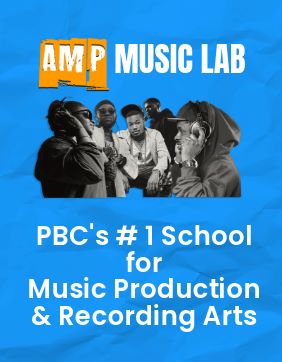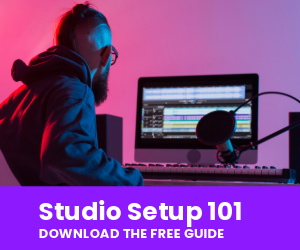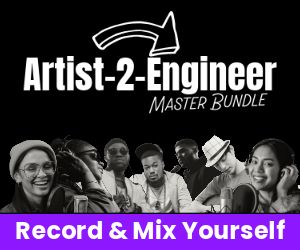
Back in 2003, I started my music publishing company and have since licensed music on CBS, MTV, Fuel TV, Nickelodeon, and many independent films and advertising projects. This can be a very lucrative revenue stream for your music catalog. On the flip side, I once secured a mechanical license with a Rock and Roll Hall of Famer, but after the artist, label, and co-producers took their cuts, there was nearly nothing left for my share. This experience taught me that while many aspiring songwriters dream of working with big artists and labels, less mainstream license deals could be more lucrative for their efforts and aspirations. Let’s break down music licensing and the “two sides.”
Types of Licenses
Mechanical License: A mechanical license grants permission to reproduce and distribute a copyrighted musical composition. This is typically required for creating and distributing physical or digital copies of music, such as CDs, vinyl records, and digital downloads. Obtaining a mechanical license often involves contacting the publisher or administrator of the musical composition directly or through a mechanical rights organization. In the United States, the Harry Fox Agency (HFA) is a prominent organization that facilitates mechanical licensing for a vast catalog of musical compositions.
Example: A record label wants to release a cover version of a popular song on a compilation album. The label contacts the publisher of the song to obtain a mechanical license for reproducing and distributing the cover version.

Synchronization License: A synchronization license grants permission to synchronize music with visual media, such as films, television shows, commercials, and video games. This license allows the music to be “synced” or played alongside visual content. Obtaining a synchronization license typically involves negotiating with the copyright owner of both the musical composition (usually the publisher) and the sound recording (usually the record label or artist).
Example: A film production company wants to use a popular song in a movie soundtrack. The company negotiates with both the music publisher and the record label to obtain synchronization rights for the song.
Performance License: A performance license grants permission to publicly perform a copyrighted musical composition. This includes performances in venues such as concert halls, clubs, restaurants, and radio broadcasts. Performance rights organizations (PROs) play a central role in managing and licensing performance rights on behalf of songwriters and publishers. In the United States, organizations like ASCAP, BMI, and SESAC collect performance royalties and distribute them to rights holders based on usage data.
Example: A nightclub wants to play background music during an event. The nightclub obtains a performance license from a PRO (e.g., ASCAP) to legally perform copyrighted music and ensures that the appropriate royalties are paid to the rights holders.
This experience taught me that while many aspiring songwriters dream of working with big artists and labels, less mainstream license deals could be more lucrative for their efforts and aspirations.

Role of Licensing in Revenue Generation
Music licensing serves as a vital revenue stream for songwriters, composers, publishers, and rights holders. By granting licenses for the use of their music in various contexts, rights holders can generate income through licensing fees, royalties, and other compensation arrangements. For example, a successful synchronization placement in a popular television show or commercial can result in substantial licensing fees and royalties for the songwriters and publishers involved. Likewise, widespread distribution of a cover version under a mechanical license can generate revenue for both the original songwriter and the cover artist. In today’s digital age, the proliferation of streaming platforms and digital services has expanded the opportunities for music licensing, further contributing to revenue generation for rights holders.
Key Players in Music Licensing
Performance Rights Organizations (PROs): PROs such as ASCAP (American Society of Composers, Authors, and Publishers), BMI (Broadcast Music, Inc.), and SESAC (Society of European Stage Authors and Composers) collect performance royalties on behalf of songwriters, composers, and music publishers. They monitor public performances of music and distribute royalties to rights holders.
Music Publishers: Music publishers represent songwriters and composers and administer the licensing and exploitation of their music. They negotiate licensing deals, collect royalties, and handle the administration of copyrights on behalf of their clients.
Record Labels: Record labels own the rights to master recordings of music and play a role in licensing music for various uses. They negotiate master use licenses with filmmakers, advertisers, and other media producers and often collaborate with music publishers and artists’ management teams.

Digital Service Providers (DSPs): DSPs such as Spotify, Apple Music, and Amazon Music license music from record labels and publishers for streaming and download. They pay royalties to rights holders based on usage metrics such as streams, downloads, and advertising revenue.
Sync Agencies: Sync agencies specialize in licensing music for synchronization in films, TV shows, commercials, and other audiovisual projects. They represent artists, composers, and music publishers and negotiate synchronization licenses with production companies and filmmakers.
Statistics and Examples
- According to a report by the International Federation of the Phonographic Industry (IFPI), global recorded music revenues reached $21.6 billion in 2020, with streaming accounting for 62.1% of total revenues.
- ASCAP collected over $1.3 billion in performance royalties in 2020 on behalf of its members, including songwriters, composers, and music publishers.
- Warner Chappell Music, one of the largest music publishers globally, represents a catalog of over 1.4 million copyrights, including hits by artists such as Beyoncé, Ed Sheeran, and Bruno Mars.
In summary, music licensing plays a pivotal role in the music industry ecosystem by facilitating the legal use of copyrighted music while ensuring fair compensation for creators and rights holders. By understanding the different types of licenses and the licensing process, songwriters, publishers, and artists can effectively monetize their work and maximize their revenue potential.
Want to dive deeper into the world of music licensing and learn how to maximize your music catalog’s revenue potential?
Whether you’re an artist looking to monetize your work through licensing or an aspiring engineer seeking professional mastery, AMP Music Lab in West Palm Beach, FL, and our online Academy of Music Production are here to help. Enroll in our Artist to Engineer Master Bundle, which includes comprehensive online courses and 1-on-1 private virtual lessons tailored to your needs. Unlock the full potential of your music with expert guidance and industry insights. Don’t wait—start your journey with AMP Music Lab today!















